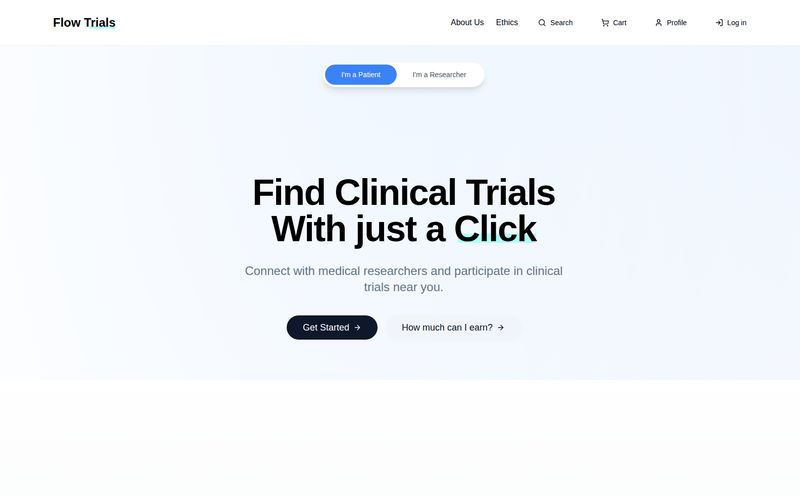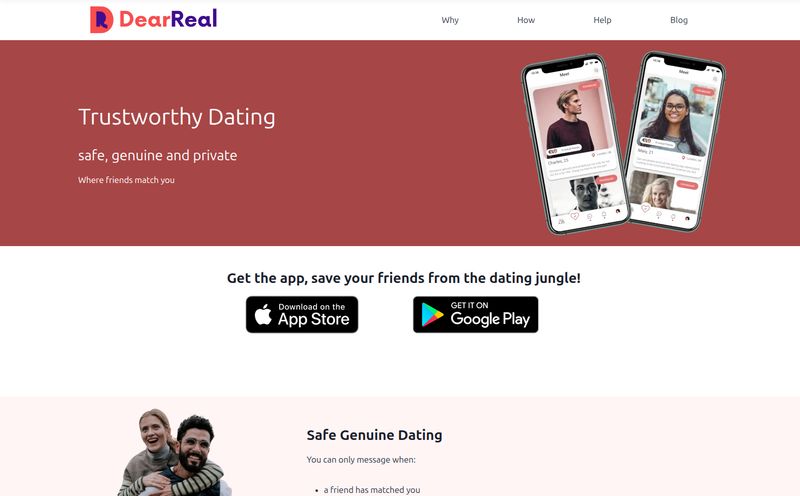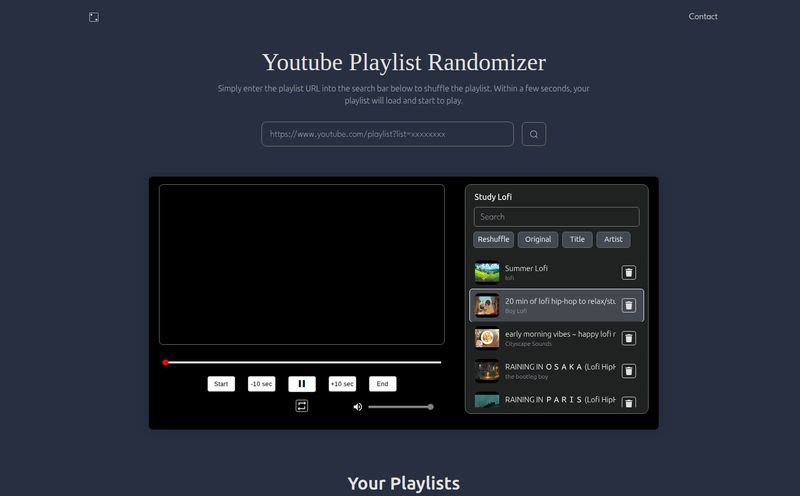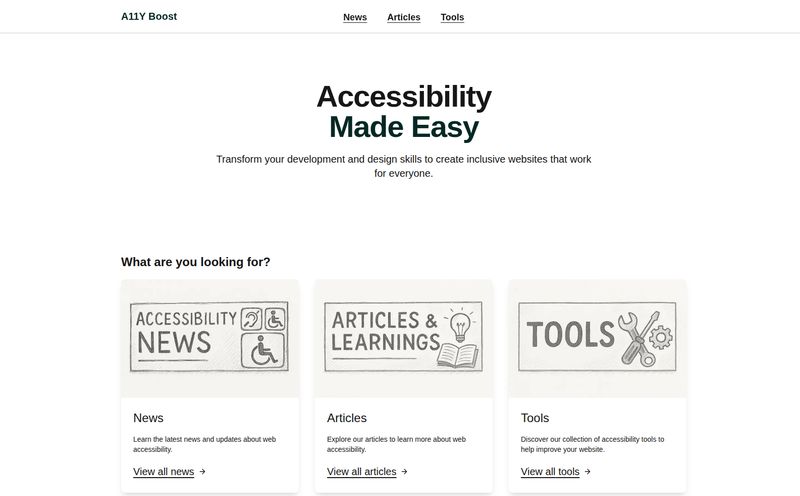Finding a good physical therapist can feel like a really, really bad blind date. You get a referral, you show up full of hope, and five minutes in you realize they’re just not getting it. They hand you a photocopied sheet of clamshell exercises while you’re trying to explain the weird, specific pinch you get deep in your shoulder only when you reach for the top shelf. It’s frustrating. As someone who has spent more time in PT than I'd care to admit (the joys of being a weekend warrior), I’ve learned that the difference between a good therapist and the right therapist is everything.
It’s the difference between months of lackluster progress and that incredible “aha!” moment when someone finally pinpoints the issue. So, when I stumbled upon a platform called Jointhera, my curiosity was definitely piqued. Their whole premise isn't just about finding a therapist; it's about finding your therapist. The specialist who actually knows about that weird shoulder pinch.
Is it just another health-tech app making big promises, or could this actually be the solution we’ve been waiting for? I decided to take a closer look.
What is Jointhera, Exactly?
At its core, Jointhera is a matchmaker. Think of it less like a bulky directory (remember the Yellow Pages?) and more like a curated dating service for your health. It’s a platform, available as both a website and a mobile app, that uses a smart algorithm to connect patients with local rehab therapists. We’re talking Physical Therapists (PTs) and Occupational Therapists (OTs) who specialize in your specific symptoms.
This isn’t just about location and availability. It’s about digging deeper. The goal is to match your unique problem—be it recovering from an ACL surgery, managing chronic carpal tunnel, or improving your athletic performance—with a professional who has built their career around treating that exact thing. It’s a move away from the generalist model and towards hyper-specialized, personalized care. And frankly, it's about time.
A Platform Born from Personal Pain
One of the first things that stood out to me on their site was the “Our Personal Story” section. I have a real soft spot for companies founded by people who actually experienced the problem they're trying to solve. It’s not just a business opportunity for them; it’s personal. The story behind Jointhera seems to follow this script—it was born from the founder’s own difficult experiences with physical therapy.
When someone has been in the trenches, they understand the nuances. They know the frustration of feeling like just another number on a busy therapist's schedule. This personal connection suggests a deeper commitment to creating a genuinely helpful tool, not just another piece of software to clutter up your phone. It builds a level of trust that you just don't get from a faceless corporation.
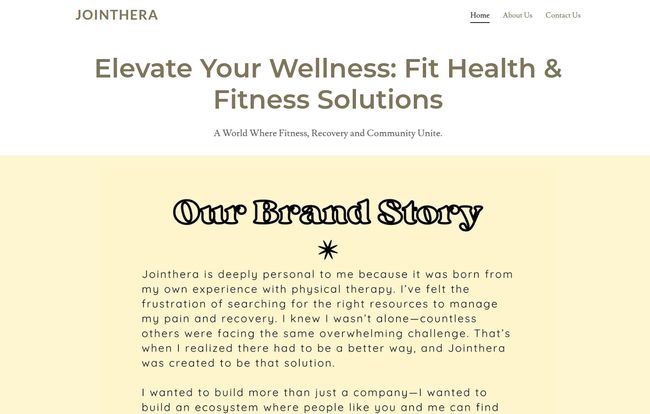
Visit Jointhera
How Does The Therapist Matching Actually Work?
This is the million-dollar question, right? An algorithm is only as good as its programming. Based on the information available, the process centers on your symptoms. You, the patient, input the specifics of your condition. The platform then sifts through its network of therapists to find local professionals whose specializations and experience align with your needs.
I can imagine the workflow: you sign up, answer a series of questions about your pain, your goals, your activity level, and the history of your injury. The Jointhera system then cross-references your answers with its database of therapist profiles. It's looking for keywords, treatment philosophies, and patient success stories that line up with what you need. In theory, this cuts out the painful trial-and-error process of vetting therapists yourself.
The whole thing hinges on this matchmaking process being accurate. If it works, it’s a massive time and energy saver. It means your first visit could feel like your third—you’re already with someone who is primed to understand your situation.
More Than a Matchmaker: The Jointhera Ecosystem
Here’s where things get more interesting. Jointhera isn't just stopping at the connection. They're building out a whole recovery ecosystem. On their website, they feature a range of “Premium Physical Products,” including things like latex-free pull-up bands and self-adhesive bandages—basically, the tools of the trade for any serious rehab effort.
The links for these products point to Amazon, which is a smart and convenient play. They understand that once you have a therapy plan, you need the gear to execute it. By providing those links, they’re closing the loop. You get matched with a therapist, you get a plan, and you can order the necessary equipment all within a few clicks. It’s a holistic approach to recovery that I can really get behind.
Breaking It Down: The Good and The Could-Be-Better
No platform is perfect, especially in the ever-evolving world of health tech. From my perspective as an SEO and traffic guy who's seen a lot of apps come and go, here's how I see Jointhera shaking out.
The Big Wins
The most obvious advantage is the potential for truly personalized care. Getting matched with a specialist from the get-go could dramatically speed up recovery times and improve outcomes. The convenience of a mobile app for managing this process is another huge plus. We manage everything else from our phones, why not our physical rehabilitation? It puts the patient in the driver’s seat. It's a far cry from waiting weeks for an appointment only to find out the therapist isn't a good fit.
Potential Hiccups on the Road
On the flip side, the platform's effectiveness is tied to two major factors. First, its focus on local therapists is both a pro and a con. If you live in a major metropolitan area, you’ll likely have plenty of options. But what if you’re in a more rural community? The pool of specialists might be tiny, or nonexistent. The platform's utility could be very location-dependent.
Second, and this is the big one, it all comes down to the algorithm. If the matching is off, the entire premise falls apart. A bad match is a bad match, whether a human or a computer made it. The success of Jointhera will live and die by teh quality of its matchmaking technology and the breadth of its therapist network.
The Power of a Shared Experience
Another element Jointhera promotes is an “Online Patient Community.” This shouldn't be underestimated. Recovery can be an incredibly isolating process. You feel like you're the only one dealing with a particular injury or limitation. Connecting with others on a similar path—sharing successes, frustrations, and tips—is powerful. It provides motivation and a sense of camaraderie that can be just as important as the physical treatment itself. Seeing they're trying to foster this through their social channels, like their Facebook community, shows they understand that recovery is a mental and emotional game too.
So, What's the Price Tag?
This is one area where I hit a bit of a wall. I scoured the website for a clear pricing page or any mention of cost, but came up empty. The pricing page link appears to be broken, leading to a 404 error. This lack of transparency can mean a few things. The service might be free for patients, with the platform charging therapists a subscription or lead generation fee. Or, they might be in a beta phase, still figuring out their monetization strategy. For now, it seems the only way to find out is to sign up and go through the process. I would assume that the cost of the actual therapy sessions would still be handled through your insurance or direct payment to the provider, as is standard.
Frequently Asked Questions About Jointhera
Is Jointhera a substitute for a doctor's diagnosis?
Absolutely not. Jointhera is a tool to help you find a qualified therapist after you have an idea of what's wrong. You should always consult with a physician for a proper diagnosis before starting any kind of physical therapy.
What kinds of rehabilitation therapists are on the platform?
The platform focuses on connecting patients with rehab specialists like Physical Therapists (PTs) and Occupational Therapists (OTs) who can help with a wide range of musculoskeletal and movement-related issues.
Is Jointhera available in my city?
Because the service matches you with local therapists, its availability and the number of specialists will vary depending on your geographical location. Users in larger cities will likely have more options than those in rural areas.
Do I need to purchase the physical products they recommend?
No, it doesn't seem to be a requirement. The product recommendations are an added convenience to help you get the tools you need for your recovery, but you are free to purchase them from anywhere or use equipment you already own.
How does Jointhera make money if the cost isn't clear?
While not explicitly stated, platforms like this typically generate revenue in a few ways: charging therapists a subscription fee to be listed, taking a commission on successful patient connections, or through affiliate commissions from product sales, like the Amazon links on their site.
Final Thoughts: Is Jointhera a Good Bet for Your Recovery?
So what's the verdict? I think the concept behind Jointhera is brilliant. It directly addresses one of the biggest pain points in the entire healthcare system: finding the right specialist. For anyone who has felt unheard or has been stuck in a cycle of ineffective, generic physical therapy, a tool like this could be revolutionary.
The success will boil down to execution. A robust and diverse network of therapists and a truly intelligent matching algorithm are non-negotiable. But the vision—a complete ecosystem for recovery that includes specialized matching, community support, and easy access to necessary tools—is incredibly compelling.
If you’re starting a new recovery journey or you're just fed up with your current progress, giving Jointhera a try seems like a low-risk, high-reward proposition. Taking control of your health sometimes means seeking out new tools and new approaches. This might just be one worth looking into.
